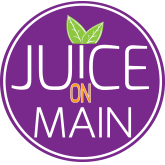Home Remedies For Easing Allergies
BY APRIL PASCARELLI
Navigating sickness is never fun, but with spring in full effect and pollen levels on the rise, allergies can often be the culprit of that runny nose. Here’s to tucking those tissues away with a few favorite home remedies that could potentially bring some rhinal relief!
Vitamin D
So, will an immune boost also help end a bout of sneezing and post-nasal drip caused by seasonal allergies? It just might. We all know how often this sunshine drug, aka mood booster, is touted. And the number one reason is to help strengthen and support our immune system. So, will an immune boost also help end a bout of sneezing and post-nasal drip? It just might. Vitamin D plays a role in so many areas of development - from our lungs to cell growth to bone health. However, it helps our immune system properly function while decreasing overall inflammation.
Local Honey
Just as spring shows up, so does the local honey - at your community farm stands or your favorite local juice bar. (Wink.) The thought behind eating local honey is that you also ingest local pollen, which can desensitize someone to that same pollen over time. With consistent intake, you should experience fewer seasonal allergy symptoms. After all, plenty use honey to help tame a cough or throat irritation. And though it can be tough to know how much one should consume for relief as there is no guarantee how much pollen is in each serving, it’s worth a shot.
Exercise
We all know that exercise is so good for us, but how can it possibly improve our seasonal allergies? After all, it’s hard enough to get a good sweat in feeling winded while wiping our nose regularly, am I right? But here’s the thing, your workout can help your seasonal allergies! When we settle into a stationary state, our blood flow slows down and becomes sluggish while our heart pumps at a resting heart rate. When we start moving, it speeds our blood flow up, and the allergens are then pushed through the bloodstream quicker and more efficiently. All the while helping to decrease the inflammation and irritation that those allergens cause.
Just consider these few things and proceed with caution:
If sticking to outdoor workouts during high pollen season, hit the pavement early morning or late evening. Middle of the day leads to dryer (and hotter) temps and can elevate symptoms. Even better, grab those sneakers and set up for a post-rain run. Go slow and switch up your routines as needed. Stick to indoor workouts, low-impact, or yoga if you’re having trouble breathing. And don’t be upset if you have to take it easy or take a day off. But if you’re feeling up to it, by all means, exercise!
Nasal Irrigation
Nasal irrigation is a great way to find instant relief and lessen the severity of overall symptoms. Whether it’s your seasonal allergies to blame, or the common cold or sinuses, irrigation can be super beneficial. And it is typically used as another everyday tool to stay symptom-free! If you are wondering what nasal irrigation is, it’s simply pouring a saltwater-based solution into one side of the nose (nostril) and letting it drain efficiently out the other. It can decrease the number of allergy meds or decongestants needed and, in return, can rinse and clear out allergens like pollen and dust and buildup of bacteria and mucus.
Herbs and Supplements
Herbs and supplements can be slightly tricky, sometimes controversial, and a little bit of trial and error, but they are talked about because they can work! However, narrowing down which ones work for you is the trick! Our bodies are all different, and what works for one person may not necessarily work for another. But there are a few that have earned a reputation for reworking our rhinitis:
Black Cumin Seed Oil can potentially stop inflammation within the nasal passage and airways. Ultimately this seed boosts the immune system allowing overall symptoms to subside. Also used to help improve lung function, it can additionally eliminate excess phlegm from the body.
Another option is butterbur leaf extract. Studies have shown that those with allergies who consistently took butterbur tablets saw improvement in symptoms within just one week! Butterbur has helped with many other issues, including migraines, but it is commonly known for relieving and reducing inflammation and ridding the body of allergy-producing substances (histamines).
And lastly, quercetin, an antioxidant flavonoid, has also been linked to relieving allergy symptoms. The good news? Quercetin is found naturally in herbs and teas and foods like onions, broccoli, apples, berries, and grapes. Giving you a reason to enjoy that occasional glass of wine!
So, in a nutshell, seasonal allergies can be a real bummer, but there are plenty of options to help stop or slow down symptoms. Acupuncture, probiotics, prebiotics, and neti pots are just a few more ways to soothe symptoms. Overall, you should be able to play down pollen levels with these at-home boosts and get back to breathing freely!

